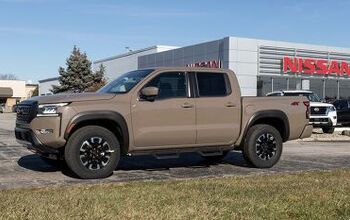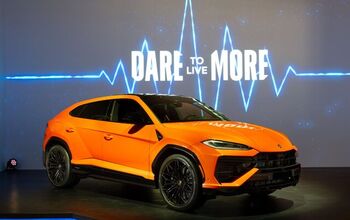NHTSA Investigates Why Kia, Hyundai Airbags Didn't Deploy in Fatal Crashes

The National Highway Traffic Safety Administration has opened a probe into two older-model Kia and Hyundai vehicles in the wake of six head-on collisions, hoping to discover why the vehicles’ airbags failed to deploy.
Included in the investigation is the 2011 Hyundai Sonata and Kia Fortes from the 2012 and 2013 model years. The collisions reported by the safety agency resulted in four deaths and six injuries.
According to the NHTSA, each collision caused significant damage to the vehicle, and should have led to front airbag deployment. This didn’t happen. The agency received the accident reports between 2012 and 2017.
Four of the collisions occurred in 2011 Sonatas sold in the United States, with a 2012 Forte and Canadian-market 2013 model rounding out the group. Naturally, part of the agency’s probe will determine whether airbags in other models might be affected. Some 425,000 vehicles currently fall under the NHTSA probe.
Speaking to Reuters, Hyundai brand spokesman Jim Trainor said the automaker is aware of two fatalities, adding that the head-on collisions occurred at a high rate of speed. The problem seems to exist only in 2011 Sonatas, he said.
Last month, Hyundai issued a recall for 154,753 Sonatas in the U.S. after receiving reports of airbag non-deployment.
“Hyundai indicates that the DIR stemmed from post-collision inspections of the air bag control units (ACUs) showing that an electrical overstress condition (EOS) of an ACU electronic component occurred in three of the crashes, and that the fourth ACU is under evaluation for the same concern,” the NHTSA said in its investigation summary. “Hyundai has not identified a remedy for this recall, and states that the cause of the EOS is being investigated with the ACU supplier, ZF-TRW.”
It’s believed the Forte models are equipped with the same ACUs.
[Image: Hyundai]

More by Steph Willems
Latest Car Reviews
Read moreLatest Product Reviews
Read moreRecent Comments
- Namesakeone If I were the parent of a teenage daughter, I would want her in an H1 Hummer. It would be big enough to protect her in a crash, too big for her to afford the fuel (and thus keep her home), big enough to intimidate her in a parallel-parking situation (and thus keep her home), and the transmission tunnel would prevent backseat sex.If I were the parent of a teenage son, I would want him to have, for his first wheeled transportation...a ride-on lawnmower. For obvious reasons.
- ToolGuy If I were a teen under the tutelage of one of the B&B, I think it would make perfect sense to jump straight into one of those "forever cars"... see then I could drive it forever and not have to worry about ever replacing it. This plan seems flawless, doesn't it?
- Rover Sig A short cab pickup truck, F150 or C/K-1500 or Ram, preferably a 6 cyl. These have no room for more than one or two passengers (USAA stats show biggest factor in teenage accidents is a vehicle full of kids) and no back seat (common sense tells you what back seats are used for). In a full-size pickup truck, the inevitable teenage accident is more survivable. Second choice would be an old full-size car, but these have all but disappeared from the used car lots. The "cute small car" is a death trap.
- W Conrad Sure every technology has some environmental impact, but those stuck in fossil fuel land are just not seeing the future of EV's makes sense. Rather than making EV's even better, these automakers are sticking with what they know. It will mean their end.
- Add Lightness A simple to fix, strong, 3 pedal car that has been tenderized on every corner.


































Comments
Join the conversation
Wait a minute now... I thought the Koreans were the NKOTB as far as quality and hitting the mark on what consumers want in a car. You mean buyers want to survive crashes too? Back to the drawing board...
At least that great warranty will replace the airbags. A long warranty makes a car reliable, right?